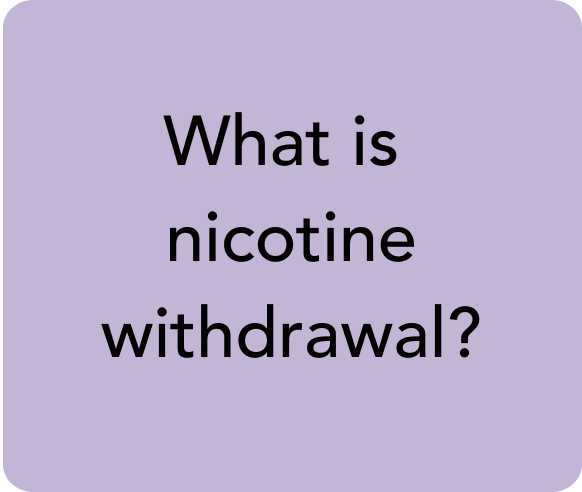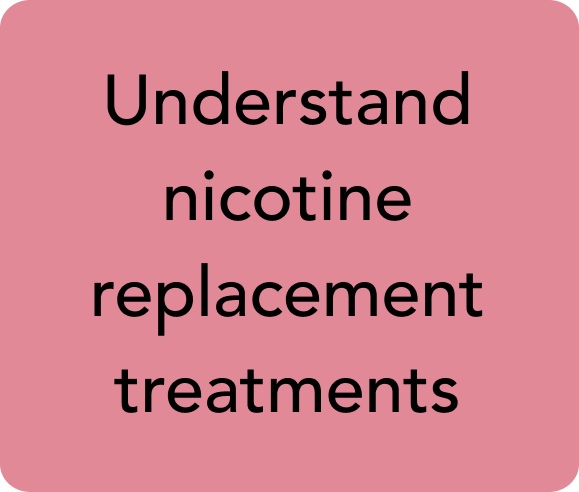The Quit Alliance can help you succeed….
Let’s quit ALL together
Let’s quit ALL together
Let’s quit ALL together
Let’s quit ALL together
How Can We Help?
I’m thinking about quitting
If you are thinking about quitting, but are not ready to set a quit date, you may benefit from tracking your use. Tracking can make you more mindful of your use by giving you an idea of how much and how often you are using. If you are ready, you can also try tapering off your use – cutting back slowly over time. Only 3-5% of people who quit tobacco cold-turkey are able to maintain it long-term, so there is no shaming in starting slow before taking bigger steps to address your tobacco use.
I'm ready to work out how to quit
If you are ready to take steps towards your quit journey, you may benefit from setting a quit date. Setting a date can help motivate you and give you the flexibility to prepare for changes you may need to make to help you along your journey. If you are interested in speaking to someone about additional resources that can help you, you can be linked to free and confidential coaching at Kick it California:1-800-300-8086 or at the Asian Smokers’ Quitline.
Help me stay on track
Making the decision to quit is the first step, but having the support to help maintain your goal can make all the difference. Studies show people have the most success quitting with a combination of social support and medication to aid them (25-30% abstinence vs. 4-7% abstinence when unaided).
Consider Nicotine Replacement Therapy (NRT) or ask your health provider about medication to help you fight cravings. See below for more information about which NRT may be best suited for you.
Join a support group to build connections with other folks who are working towards tobacco-cessation. Check our Find Your Alliance page to see which of our partners offer tobacco-cessation support groups or counseling.
Source:
Treating Tobacco Use and Dependence: 2008 Update – NCBI Bookshelf (nih.gov)
I’m smoking again
Quitting is not easy! In fact, less than 10% of adult smokers who attempt to quit each year are successful. Cigarettes have been designed to optimize the delivery of nicotine, an incredibly addictive substance, into your body. Having slip-ups is a natural part of the quitting process and can give you a chance to evaluate any triggers you may have that lead you to use. Relapse does not have to mean failure!
Source:
Smoking Cessation: Fast Facts | Smoking & Tobacco Use | CDC
I’d like to help others quit
If you are an LGBTQ+ smoker who has managed to quit, that is an amazing accomplishment! Hearing successful quit stories can be very encouraging for those trying to quit. If you would like to share your story, make sure to Contact Us so we can add you to our list of testimonials! There is also potential for you to participate more speaking engagements/projects in the future.
If you are the loved one of a smoker and want to learn more about how you can help them quit, you can access a guide and resources from Kick it California here – Kick It California – Friends Family Guide
Build Your Knolwedge
Build Your Knolwedge
Build Your Knolwedge
Build Your Knolwedge
What is Nicotine Withdrawal?
If you’re a regular smoker, your body becomes accustomed to functioning with nicotine in its system. When you stop smoking and cut your body off from nicotine, you may experience withdrawal. Nicotine withdrawal is more likely to occur if you are a regular smoker, and begins 2-3 hours after last having a cigarette. Symptoms include: intense cravings for nicotine, anxiety, depression, drowsiness or trouble sleeping, etc. If you’re experiencing nicotine withdrawal and want to learn more about nicotine replacement therapies, see below.
Sources:
Understanding NRT’s
Nicotine Replacement Therapies (NRTs) can help you fight cravings and deal with symptoms of nicotine withdrawal. They allow your body to get a dose of nicotine, without the many toxins found in most tobacco products.
Options for nicotine replacement therapies include over the counter items like nicotine gums, lozenges, and patches, as well as some that require a prescription, like inhalers.
Get more information on NRTs, their symptoms, dosage, and more here.
Why do I smoke when I want to drink?
Alcohol and nicotine both affect the dopamine system in your brain, a chemical associated with happiness and pleasure. This release of dopamine is imprinted on the memory, which makes people want to repeat these activities. Therefore, when you drink alcohol, it makes you remember other activities/substances that may have made you feel that same dopamine rush, like smoking.
Interestingly enough, when taken in combination, alcohol and nicotine actually stop the release of dopamine. This causes people to “chase the high” per say, by consuming more alcohol/nicotine, leading to a risk for abuse. In fact, regular smokers are far more likely to abuse alcohol as well.
Sources:
The dangers of liquid nicotine
Since these products are relatively new, very few studies have been done on the long-term effects of e-cigarettes/vapes. The market for these products is also incredibly unregulated, which leads to a risk of contamination from several toxins.
Liquid nicotine has been found to contain lead, harmful chemicals, and cancer-causing agents.
Sources:
How to deal with stress when you quit
After quitting, you may find that you have grown accustomed to managing your stress with tobacco. In addition, LGBTQ+ folks must deal with stressors that may come with discrimination, dysphoria, isolation, etc. Finding other ways to cope with stress can help you fight the urge to go back to using. Consider the following:
- Breathing exercises
- Positive visualization (imagine a positive image, or memory that brings you peace)
- Exercise, even something simple like taking a walk
- Build community, by attending events or support groups
- Self-care, whether it’s with diet, proper sleep, or however you can best take care of yourself
Confidence to quit
Deciding to quit is a big step. Assessing and strategizing where your strengths are and what resources you may need along the way can be a huge boost to your confidence on your quit journey. Consider the following:
- Building a quit plan: setting a quit date, calculating how much money you will be saving, thinking about your motivations for quitting, making a plan to deal with stress and other triggers, and considering resources you may need (like a quit buddy, support group, or nicotine replacement therapy.
- Calling a Quitline: A Quitline can connect you directly to a trained coach that can listen to your unique circumstances and help you build a quit plan
National Quitline: 1-800-QUIT-NOW (1-800-784-8669)





